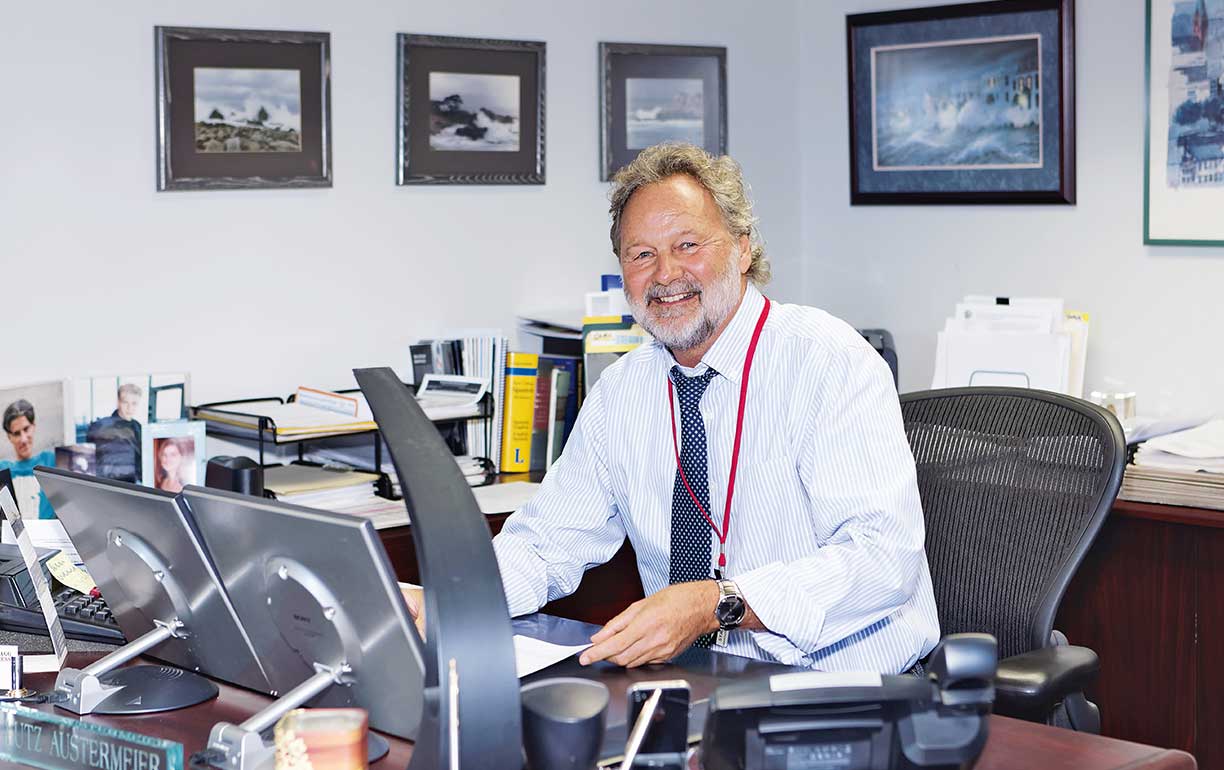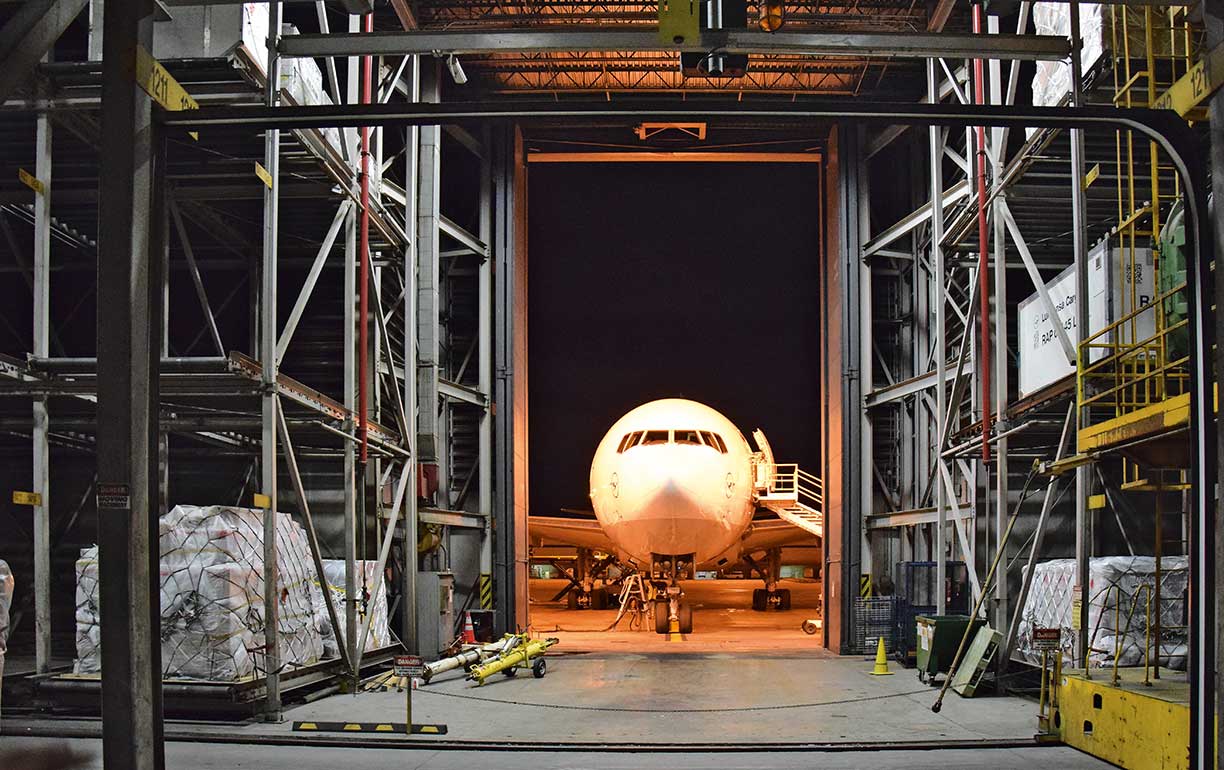
Night shift in Chicago.
When darkness falls at Chicago’s O’Hare Airport, that is when work begins for the specialists from Lufthansa Cargo. Reporter Cornelia Garmann turned night into day for planet and accompanied the handling process of a Boeing 777F. Darkness engulfs the corridors of Lufthansa Cargo’s office suite in Chicago. Most of the people who work here have long since returned home to their families. Night descends upon the city. Silence prevails. It’s hard to believe that the world on the first floor, two levels further down, is a completely different one.
There, in the warehouse, the day only really begins with the night shift. Overnight transports are a focus in Chicago. Unlike Frankfurt, where there is a ban on night flights, cargo flights can operate at all times in Chicago and only passenger flights are allocated limited slots. Cargo from Germany is flown out of Frankfurt in the evening and arrives punctually during the night for a new day of production. In addition, the customers in Chicago can deliver export cargo that same evening.
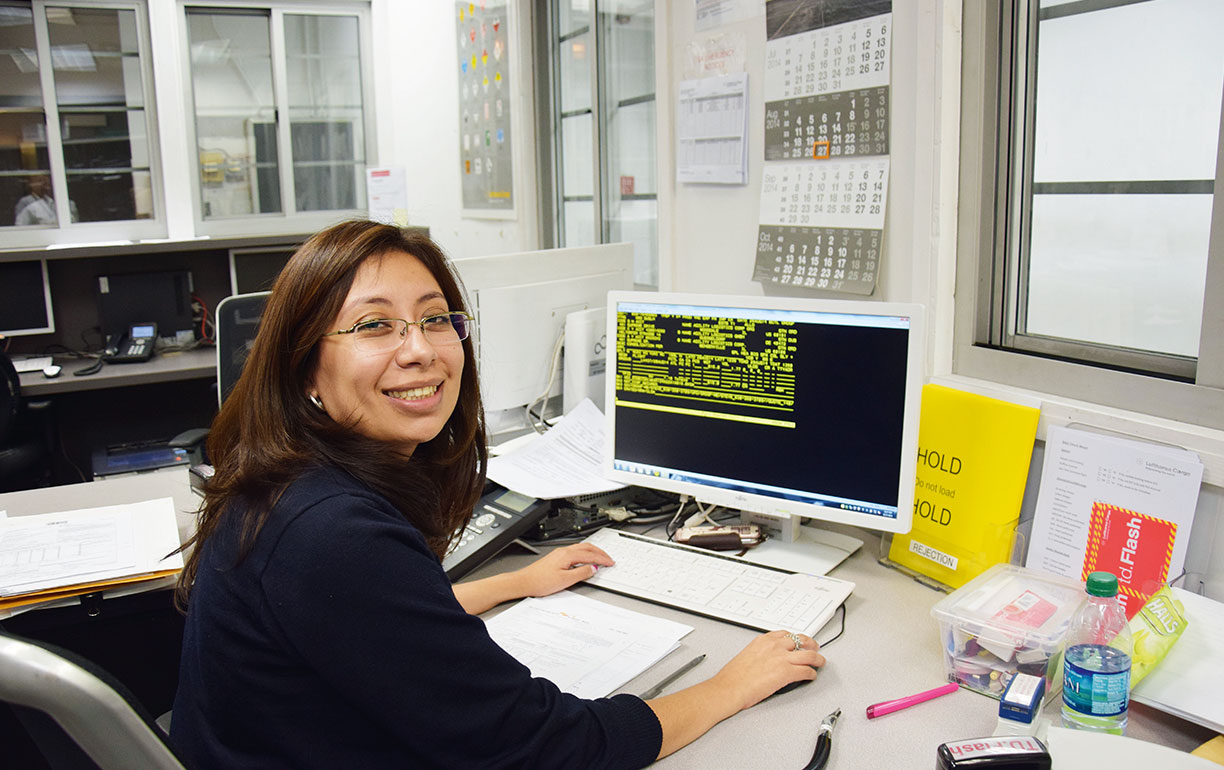
The customers are waiting in line at export acceptance. Elizabeth Ordonez is their first contact partner tonight. She checks the documents and inspects the security of the cargo. Once everything’s OK, the freight can be transferred to the warehouse while Ordonez compiles all the necessary documents for the flight.
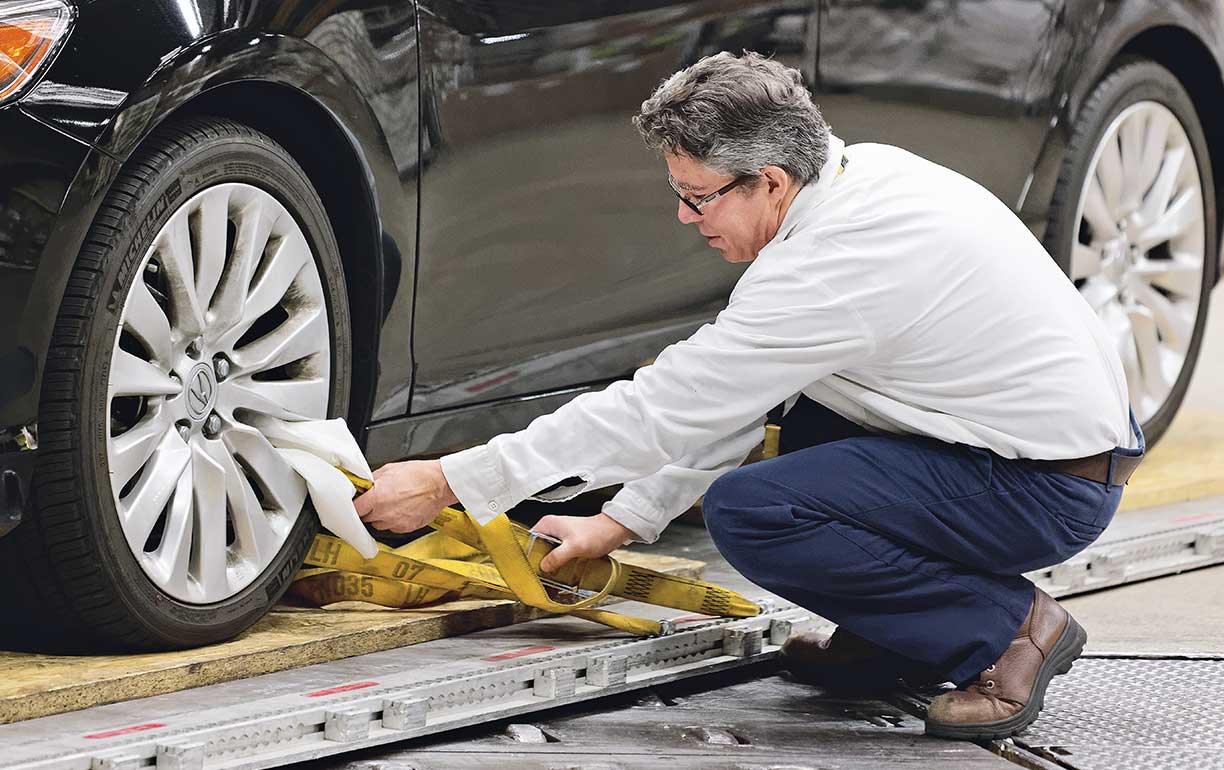
As foreman, Ted Sayles is responsible for the build-up. In Chicago, customers often deliver freight that is already consolidated. Sayles checks whether the shape of the pallet fits that of the aircraft. “What makes our station so special is that we permanently build up pallets,” Sayles explains. As soon as enough cargo is there, it is consolidated and put into intermediate storage.
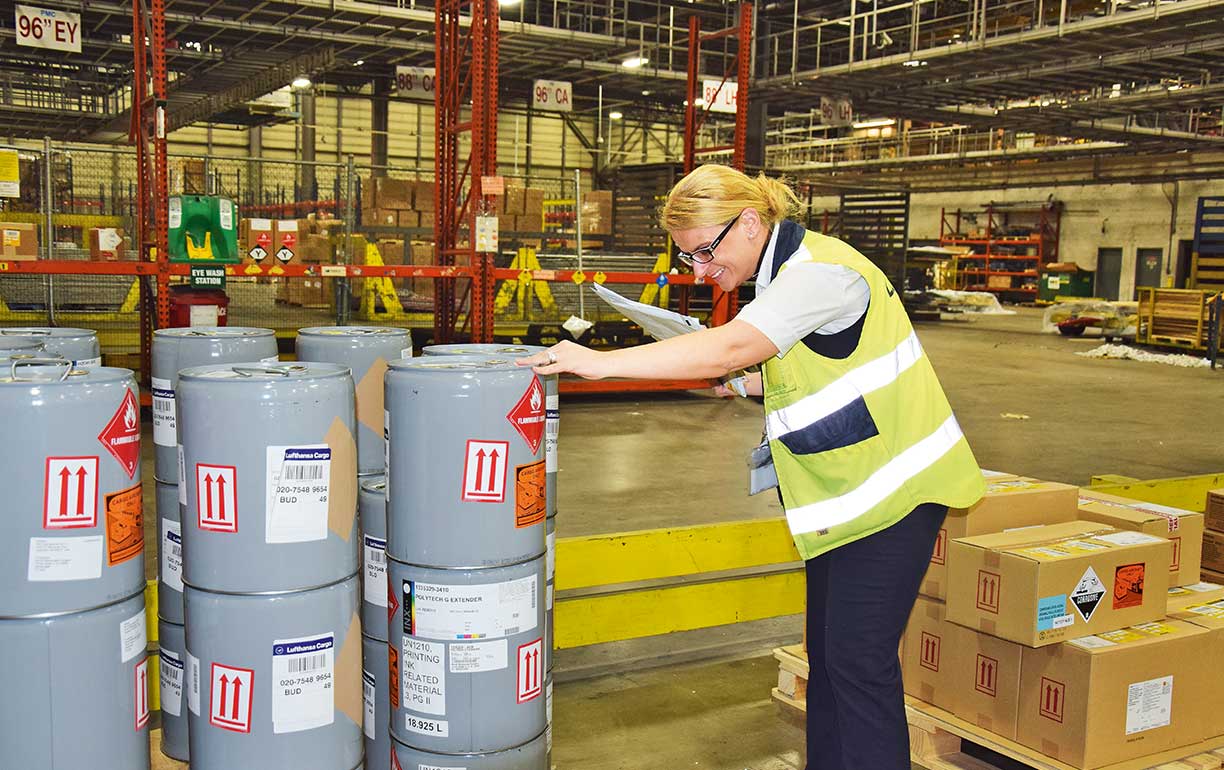
Pallets that are already consolidated are not what DGR export employee Mubera Cehaic needs. Dangerous goods require special handling. The region around the metropolis Chicago has several major pharmaceuticals and chemicals companies that handle large quantities of sensitive goods. The dangerous goods are stored separately from the remaining items of cargo and built up in their own process.
Cehaic and her colleagues check the accuracy of the documents twice beforehand and make sure that the air waybill corresponds to the labels on the packages. DGR experts then build up the dangerous goods pallets – and check the data a third time. Once the pallets have been consolidated and all documents verified, Cehaic compiles what is known as the manifest. It describes what is on which pallet. A copy of the manifest is now passed on to colleagues in Operations.
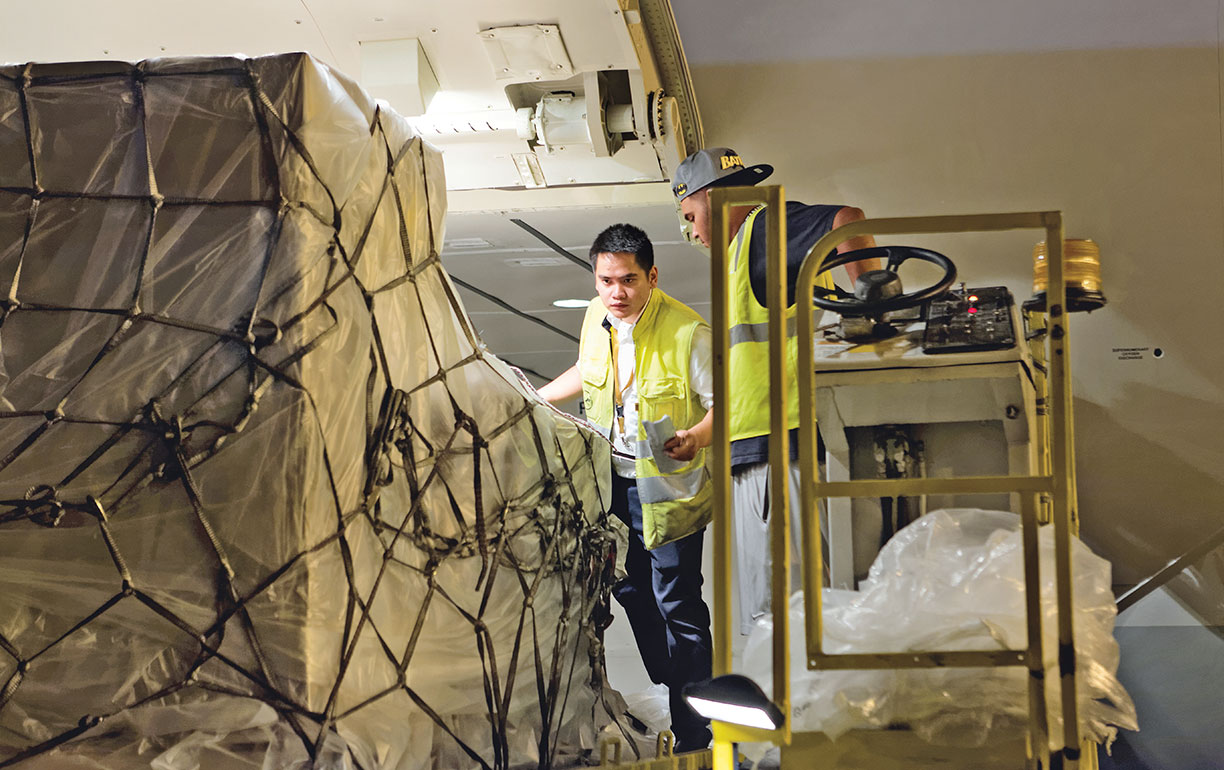
Operations staff have long since started to plan the unloading of the incoming freighter: “We receive the import data four hours prior to arrival and can prepare the unloading,” explains Operations Agent Carlo Limiac, who is responsible for operations tonight. At the same time, he also starts preparing the loading of flight LH8189 to Frankfurt: “We usually have two-and-a-half hours to turn an aircraft – in other words, to unload and load it.”
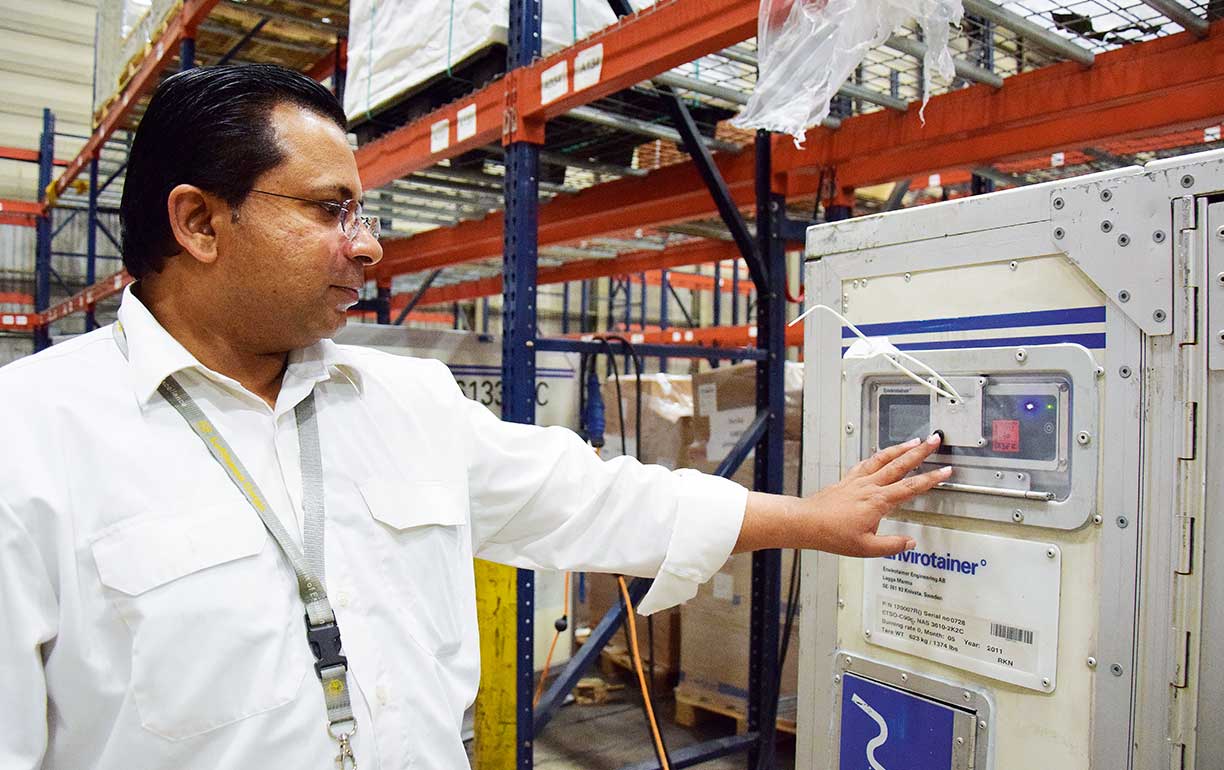
The freighter from Frankfurt has landed. As import lead-employee, Siju Varghese is in charge of cargo break-down. “Our rush hour is usually between 5 and 9 p.m. Our import customers can pick up their goods around the clock on request.” This service is primarily used in the case of Express and Cool shipments.
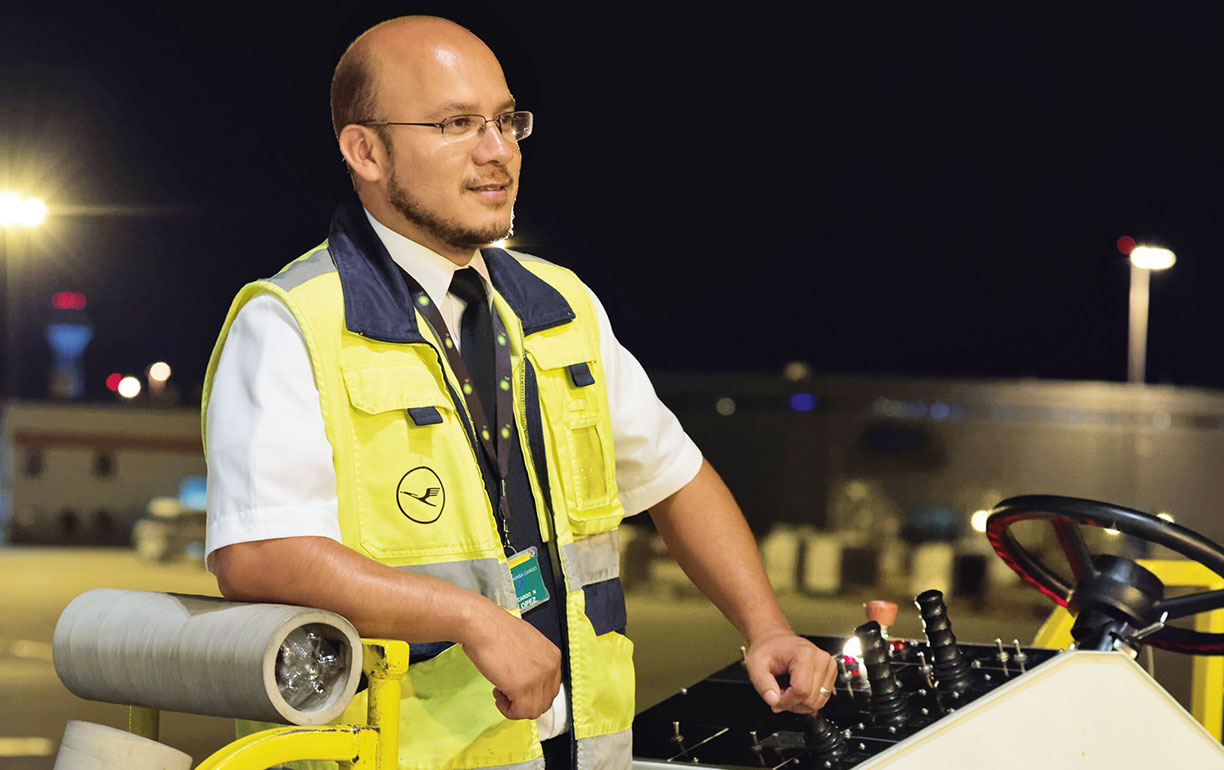
The cargo for flight LH8189 is allocated for shipment. Operations Agent Ricardo Lopez ensures compliance with all stipulated security measures in and around the freighter: is everyone wearing reflective vests and protective shoes? A safety check like this is mandatory for ten percent of the turns. Even though all handling colleagues know the exact regulations – it’s better to be safe than sorry.
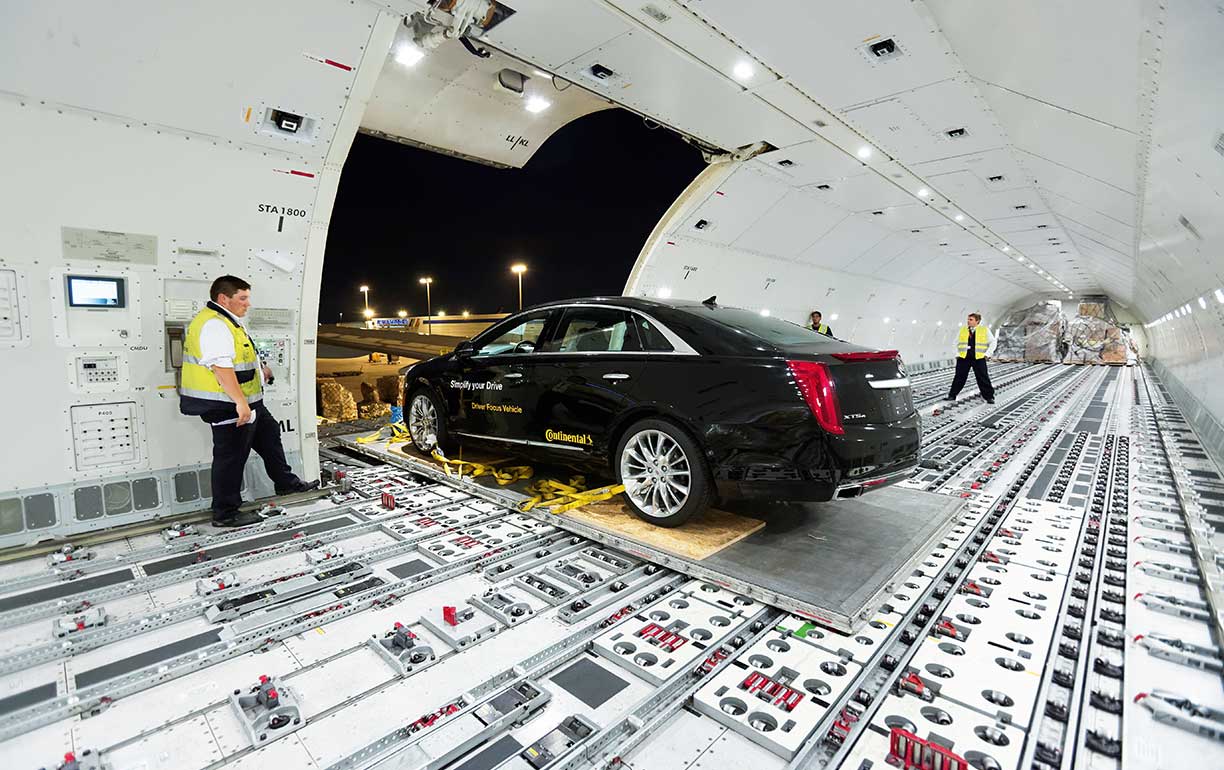
On the main deck, his colleague Randall Hiller is responsible for loading the freighter with the utmost precision. Just like all his other colleagues here, Hiller is trained to handle all standard freighter types, as other airlines can also book Lufthansa Cargo handling: B747F, B777F and MD-11F. “But our ‘Triple Seven’ is the most fun.”
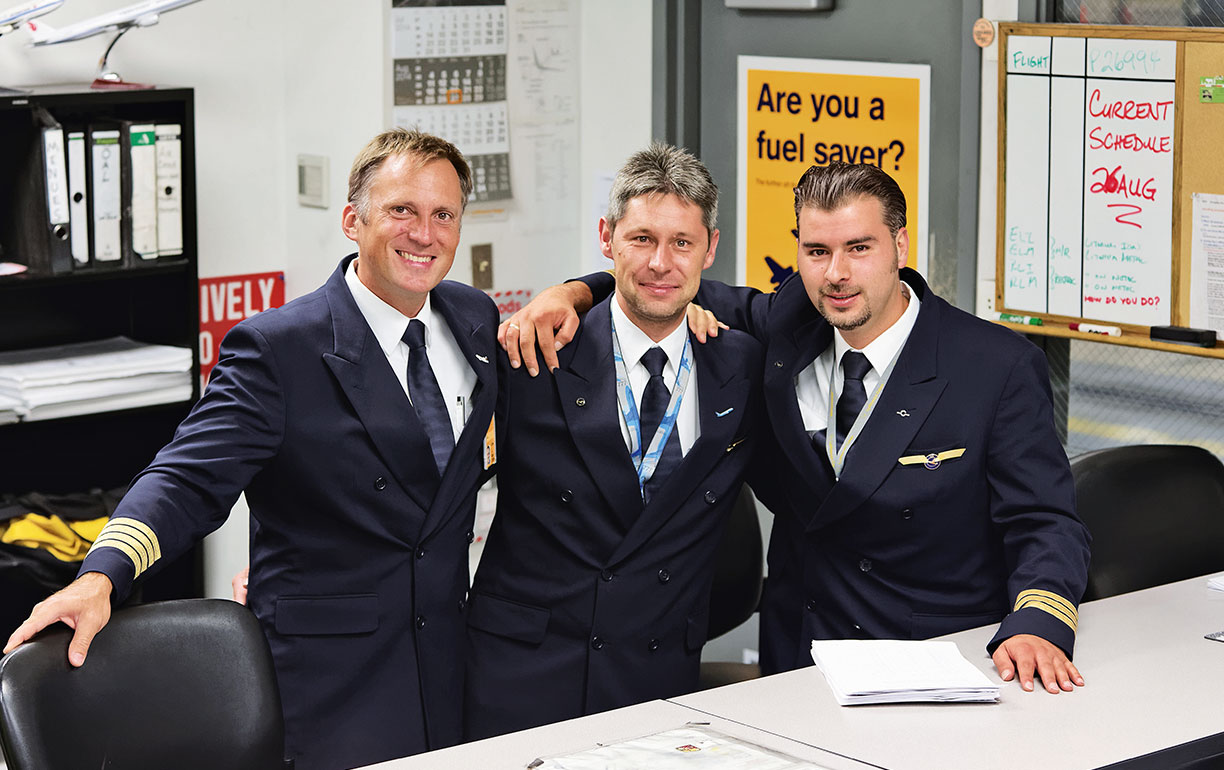
Captain Gottfried Knoll (l.) and his colleagues arrive for pilot briefing. Carlo Limiac provides them with all the necessary information on the cargo, weather and possible routes. “In Frankfurt, we receive this information from flight operations colleagues – in Chicago, the ops are entrusted with this task,” says Knoll. On the basis of this data, the captain calculates his refueling and sets the exact flight route.
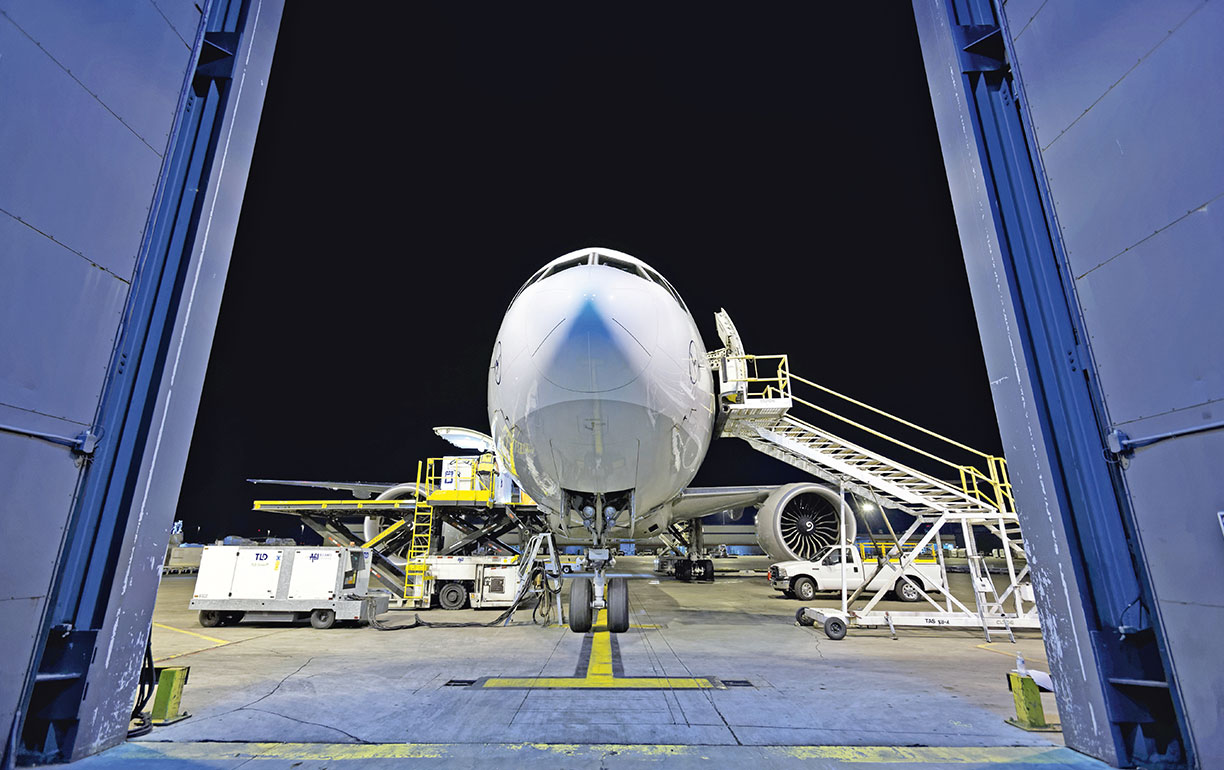
Fully loaded, LH8189 taxis towards the runway and takes off into the sunrise. The night shift in Chicago ends between 4 and 6 a.m. The roads become busier again as early risers make their way to the office. Hiller, Lopez, Cehaic and their colleagues gradually start moving in the other direction, ready to enjoy their well-deserved rest.
Two-and-a-half hours for “turning”: the B777F “Good Day USA” from Lufthansa Cargo during unloading and loading at O’Hare Airport.
Mr. Austermeier, the name of your freight forwarding company Chicago Express spells out a clear message, doesn’t it?
Absolutely. We are fast, and our heart beats in Chicago. But we’re not just a freight forwarder. We also operate on all stages of the supply chain – from procurement through to transport in the country of origin and on to delivery.
What do you expect from the airline that completes your supply chain?
The network is important to me. The fastest solution, of course, is when the plane lands directly where my goods have to go. As Lufthansa Cargo has a very widespread network, that company is frequently first choice. What is more, I set great store by personal contact. That’s why, despite many offers, I have never enlarged my company in any extreme way. Like myself, my customers always want to know who they are dealing with.
Don’t medium-sized businesses in the industry have a hard time against its giants?
Everyone is having a hard time in our economic situation. All I can say is: you should never lose your sense of innovation and courage. Neither as a big player nor as a small company: nothing ventured, nothing gained!
And what have you ventured?
I reckon I’ve made quite a few bold moves. Setting up a business in the import and export sector, for example. Personally taking care of urgent freight from pick-up through to delivery is much more efficient than engaging a separate forwarder – Chicago Express was born. I am proud of the IT system “Cargo Wise” that we have developed for small and medium-sized firms. An Australian company bought it a while back, and it is lucratively marketed today by “Wise Tech Global”.
What makes the relationship to Lufthansa Cargo so unique?
Honesty. I know that I am being taken seriously. If anything should go wrong, it is communicated openly. What I also rate highly is, for example, that I can deliver or pick up particularly urgent freight outside of core business hours. Alongside measurable facts, quality for me is also about trust!
Photos:
Cornelia Garmann, Natalia Plekhanova
|
Mr. Austermeier, the name of your freight forwarding company Chicago Express spells out a clear message, doesn’t it? What do you expect from the airline that completes your supply chain? Don’t medium-sized businesses in the industry have a hard time against its giants? |
And what have you ventured? What makes the relationship to Lufthansa Cargo so unique? |
Photos:
Cornelia Garmann, Natalia Plekhanova

